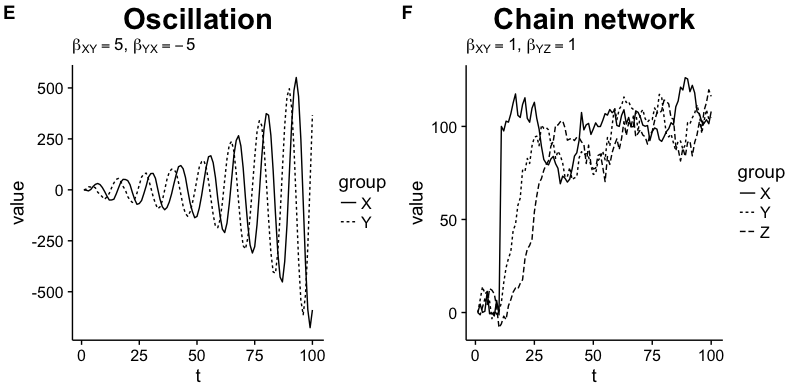Causal Structure Learning with Continuous Variables in Continuous Time

Abstract
Interventions, time, and continuous-valued variables are all potentially powerful cues to causation. Furthermore, when observed over time, causal processes can contain feedback and oscillatory dynamics that make inference hard. We present a generative model and framework for causal inference over continuous variables in continuous time based on Ornstein-Uhlenbeck processes. Our generative model produces a stochastic sequence of evolving variable values that manifest many dynamical properties depending on the nature of the causal relationships, and a learner’s interventions (manual changes to the values of variables during a trial). Our model is also invertible, allowing us to benchmark participant judgments against an optimal model. We find that when interacting with systems acting according to this formalism people directly compare relationships between individual variable pairs rather than considering the full space of possible models, in accordance with a local computations model of causal learning (e.g., Fernbach & Sloman, 2009). The formalism presented here provides researchers in causal cognition with a powerful framework for studying dynamic systems and presents opportunities for other areas in cognitive psychology such as control problems.